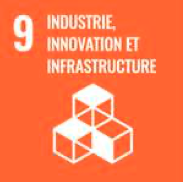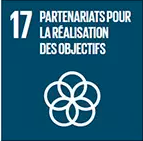Shared sciences
Find out more about the shared sciences research being carried out at CNRS Humanities & Social Sciences and its laboratories.
CNRS Humanities & Social Sciences aims to encourage thought about the right methodologies to produce research in which the populations observed can be stakeholders in the knowledge produced about/based on them. The Institute also wishes to encourage research in which knowledge about a third-party object is co-produced with stakeholders from society who are sometimes and increasingly often called a 'third research sector'. The participation of such stakeholders can also involve the joint dissemination of research results. The production of research results for society is an integral part of this approach. The aim here is to encourage research that is favourable to this type of co-construction and also open up a space for thought about these mechanisms, the expectations regarding them, their limits and the misunderstandings they could bring up on both sides. This would also involve thought about the important issues involved in terms of data protection or open science as current French and European calls for projects are openly encouraging researchers to engage in this type of approach to their work.
CNRS Humanities & Social Sciences wishes to draw on the experience gained from past or current projects (nearly 200 such projects were listed by the CNRS Scientific Council for 2020-2021) and collaborate with existing working groups (such as the Participatory Democracy and Public Participation GIS) to increase the Institute's involvement in the subject of shared sciences from a methodological standpoint and to propose mechanisms that are well-adapted to the HSS and adaptable for all sciences.


Research centers and networks
CNRS Humanities & Social Sciences laboratories
- Ambiances Architectures Urbanités (AAU)
- Centre d’histoire sociale des mondes contemporains (CHS)
- Centre Internet et Société (CIS)
- Centre Norbert Elias (CNE)
- Centre Universitaire de Recherches sur l’Action Publique et le Politique Épistémologie & Sciences Sociales (CURAPP-ESS)
- Dynamique du Langage (DDL)
- Espaces et SOciétés (ESO)
- Institut d’histoire du temps présent (IHTP)
- Institut de Recherche sur la Renaissance, l’âge Classique et les Lumières (IRCL)
- Laboratoire Architecture Ville Urbanisme Environnement (LAVUE)
- Laboratoire d’ethnologie et de sociologie comparative (LESC)
- Laboratoire interdisciplinaire Solidarités, Sociétés, Territoires (LISST)
- Litt&Arts
- Patrimoines locaux, Environnement et Globalisation (PALOC)
- PASSAGES
Laboratories in other countries
Innovation and outreach
- Le CNRS participe au groupement d’intérêt public (GIP) Institut des études et de la recherche sur le droit et la justice (IERDJ). Il a pour objet la promotion et la diffusion de recherches sur le droit et la justice et les champs associés.
- Dominautes - Centre d'études en sciences sociales du religieux (CéSor)
Post-doctorat CNRS Sciences humaines & sociales
CNRS Sciences humaines & sociales finance un post-doctorat en appui à la chaire de professeur junior « Recherche sur les sciences participatives : rôles et modalités transformatrices » affecté au PALOC.
Research Program
- CNRS Sciences humaines & sociales porte le PPR Autonomie, dont la direction est actuellement assurée par Cécile Bourreau-Dubois, Professeure d’économie à l’Université de Lorraine.
- CNRS Sciences humaines & sociales est impliqué dans le PEPR ICCARE (financement PIA4). Solveig Serre et David Coeurjolly portent le programme.
- CNRS Sciences humaines & sociales est impliqué dans le PEPR Risques (financement PIA4). Soraya Boudia porte le programme pour le CNRS.
- CNRS Sciences humaines & sociales est impliqué dans le PEPR VDBI (financement PIA4).Gilles Gesquières porte le programme pour le CNRS.
- CNRS Sciences humaines & sociales soutient le programme RI2 Héritages Linguistiques, Cultures orales, Éducation en Océanie (HELICEO).
Networks
- GIS Participation du public, décision, démocratie participative (Démocratie et participation)
- RT EASI (Écritures alternatives, sciences sociales et images)
- RT Internet, IA et Société